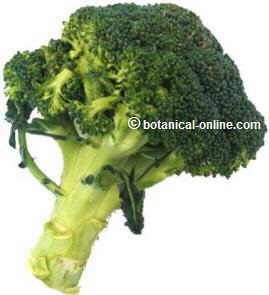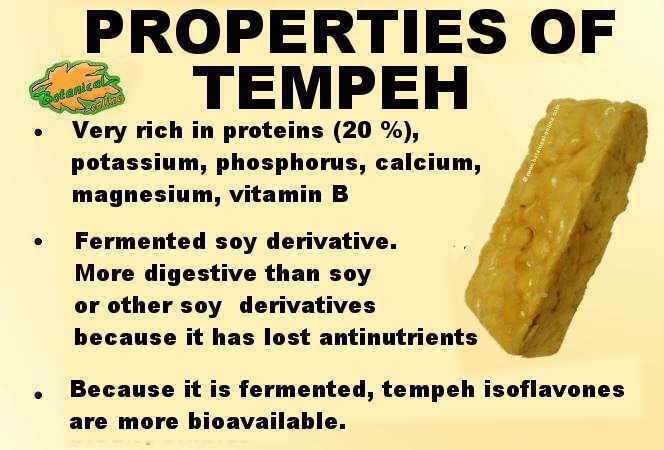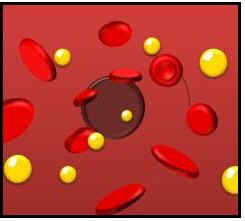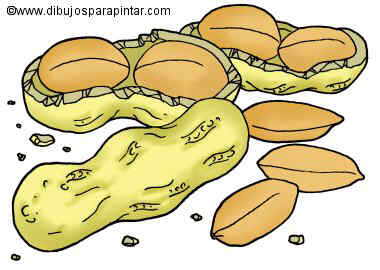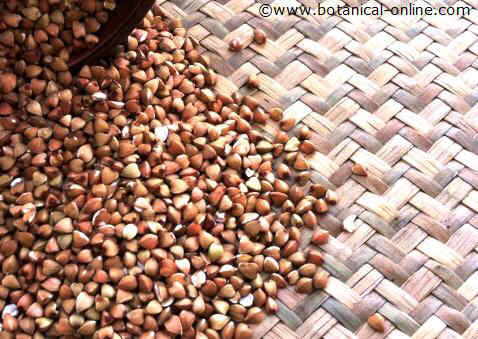Contents
What is soluble fiber and what are the benefits of foods that contain it?
What is soluble fiber?

Soluble fiber is the type of fiber that dissolves in water (it becomes hydrated). When it dissolves or hydrates, it forms a kind of gel or jelly in the intestine.
The gel formed by the soluble fiber traps the cholesterol found in the intestine, preventing it from passing into the bloodstream.
The liver, which needs cholesterol to form bile acids, must take it from the blood, as it is not obtained from the intestines. This causes a decrease in blood cholesterol.
Soluble fiber benefits
In addition to helping to lower cholesterol, hydrated soluble fiber occupies a lot of volume and presses on the intestinal walls, which stimulates and increases the peristaltic movements of the intestine. It causes an increase in the frequency of bowel movements and the volume of stool.
For these reasons, soluble fiber has properties to lower cholesterol, prevent constipation, and improve intestinal flora.
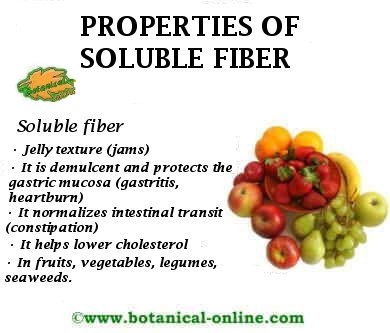
Sheet with the properties of soluble fiber
Satiating properties of soluble fiber
Once hydrated, the fiber increases its volume and is suitable for weight loss, by increasing the feeling of satiety or fullness with food and remedying the craving to eat.
Without the presence of soluble fiber, the stool tends to be too hard in consistency, which makes it difficult to pass. The ingestion of foods rich in soluble fiber will help soften the stool and facilitate its elimination through defecation, avoiding the appearance of hemorrhoids.
Studies have shown that those who eat a diet rich in fiber are less likely to suffer from colon cancer, breast cancer and lung cancer.
* Related information: Soluble fiber types
![]() More information on the properties of fiber, benefits and a diet rich in fiber.
More information on the properties of fiber, benefits and a diet rich in fiber.

